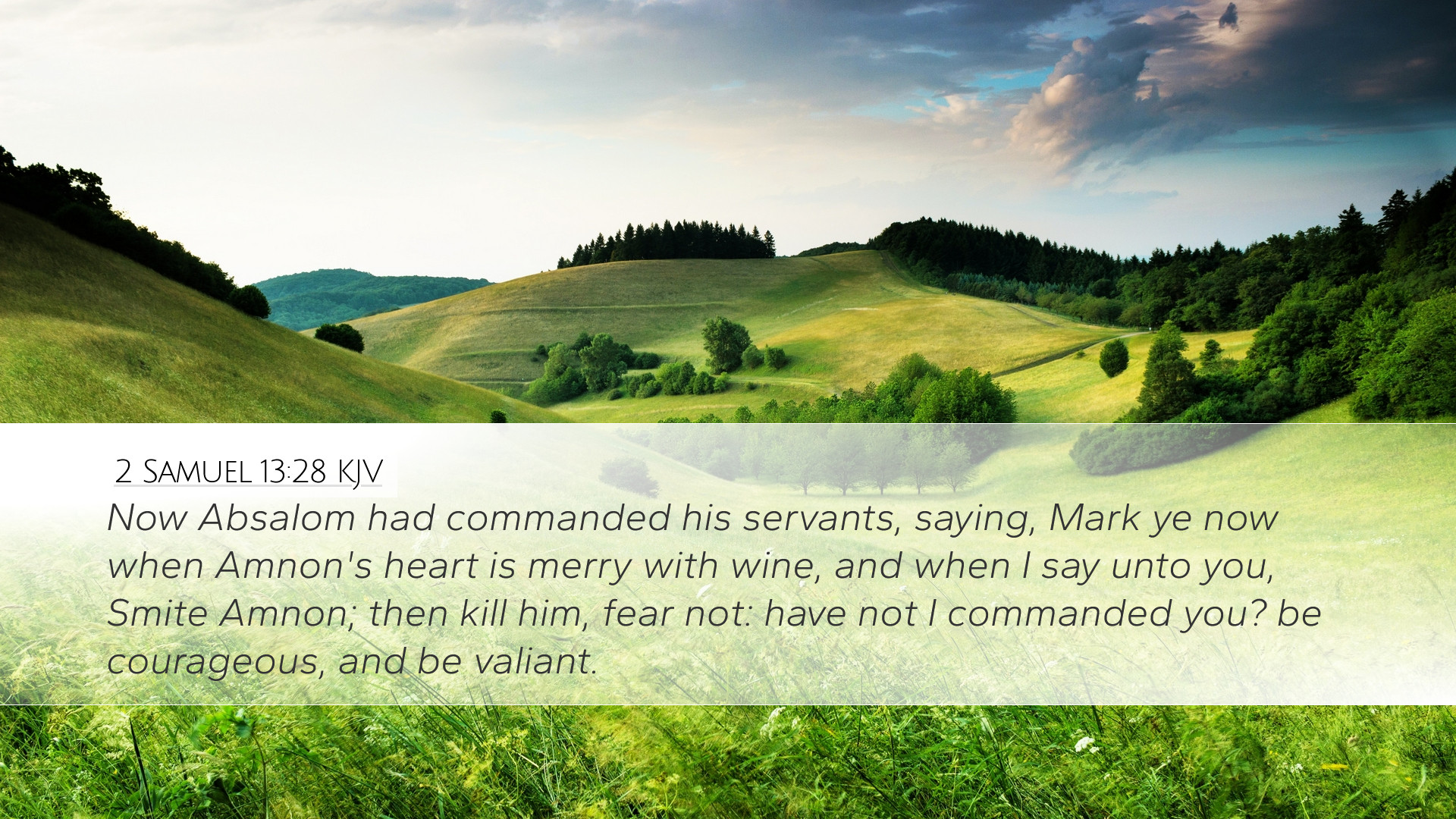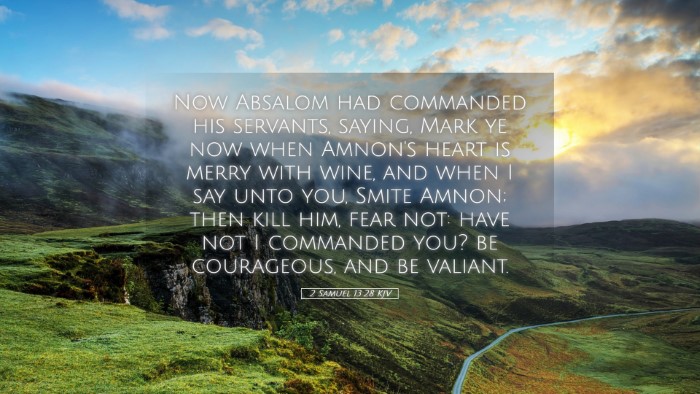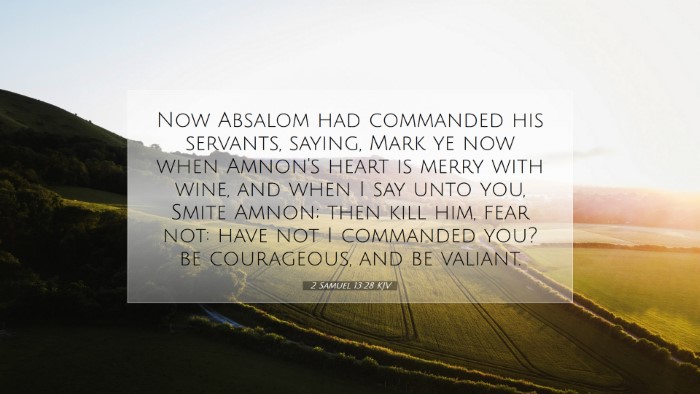Commentary on 2 Samuel 13:28
The verse 2 Samuel 13:28 captures a pivotal moment in the tragic narrative surrounding Amnon, Tamar, and Absalom. In this verse, we witness the instigation of a consequential plan by Absalom following the violation of his sister Tamar. The verse reads:
"But Absalom ordered his young men, 'Watch when Amnon's heart is merry with wine, and when I say to you, "Strike Amnon," then kill him. Do not be afraid; have I not commanded you? Be courageous and be valiant.'" (2 Samuel 13:28, ESV)
Context and Background
The events depicted in 2 Samuel 13 are part of the broader narrative of David's family, characterized by dysfunction and moral failure. Amnon, the firstborn son of David, had raped his half-sister Tamar, leading to a profound familial rift. Absalom, Tamar's brother, took matters into his own hands, seeking vengeance against Amnon. This verse crystallizes Absalom's resolve and premeditation.
Thematic Insights
-
Revenge and Its Consequences:
Absalom's plot of revenge demonstrates how deeply sin affects interpersonal relationships, leading to cycles of violence. The act of ignoring the initial sin (Amnon's atrocity) directly leads to further sin (Absalom's murder), illustrating the biblical principle that sin begets more sin. As Adam Clarke notes, "the unrestrained passion for revenge can lead even the most noble of individuals into great calamity."
-
God's Sovereignty in Family Conflict:
While human actions play a significant role, the overarching narrative is under God's sovereignty. This conflict in David's household can be seen as a consequence of David's own failings - both in parental discipline and moral conduct. Matthew Henry writes, "The affliction that comes upon families is often a punishment for their head's wrong-doings."
-
The Role of Wine in the Plot:
The mention of wine indicates a common motif of inebriation leading to foolish actions. Absalom recognized a moment of vulnerability in Amnon’s state, manipulating it for his own ends. This action serves as a reminder of the clarity and caution that should characterize our dealings with those who commit wrong against us.
Character Analysis
-
Absalom:
Absalom's character is revealed in his determination and methodical planning to achieve his vengeance. He becomes a figure representing the deep scars of injustice that can lead to rebellion. Clarke interprets Absalom as "a tragic hero, albeit flawed by his inability to forgive and reconcile."
-
Amnon:
Amnon's earlier actions set the stage for this tragic downfall. His lust and subsequent violation of Tamar not only ruin his life but also ripple through relationships within David's family. This underlines the biblical principle that unchecked desire can lead to devastating consequences.
-
Tamar:
Although Tamar is not the direct subject of this verse, she is the victim whose trauma catalyzes the whole series of events. Pastoral reflections on this narrative should underscore the safeguarding of the vulnerable and the call for the Church to protect those who are harmed, ensuring their voices are heard and respected.
Applications for Pastors and Theologians
The story underlying 2 Samuel 13:28 serves as a profound warning and a source of learning for pastors and theologians. The elements of sin, judgment, and human emotion are still alive in today's congregations:
-
Prevention and Accountability:
Pastors must encourage accountability within the church, fostering an environment where sin can be confronted, repented of, and healed.
-
Addressing Injustice:
The Church has a role in addressing injustices within its own community and society at large. Incidents of abuse, marginalization, or dishonor should be countered with a commitment to justice and healing.
-
Forgiveness and Redemption:
The broader narrative calls for a deeper understanding of forgiveness. Absalom's path illustrates the dangers of not extending grace, even in the wake of significant personal hurt.
Conclusion
2 Samuel 13:28 stands as a crucial verse in the broader narrative of David’s family saga, illustrating the perilous consequences of unaddressed sin, familial strife, and the cycle of revenge. Its lessons are timeless and deeply resonant with contemporary issues surrounding justice, forgiveness, and the complexities of human relationships. For pastors, students, and scholars, this text invites thoughtful reflection on the nature of sin, the imperative of forgiveness, and the importance of addressing and reconciling conflicts within the family of God.


